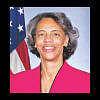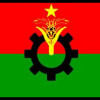Understanding the insidious extremism
The people of Bangladesh in general and god-fearing Muslims in particular need to understand the threats posed to their democratic pluralistic dispensation by religious extremists. Events in Bangladesh and France in recent times point to such an imperative. From a historical perspective, one may recollect the deadly clashes in 1953 when two groups of Muslims fought bloody battles on the streets of Lahore, the heart of Pakistan's Punjab, in the name of Islam. Hundreds died and a sect of believers was declared heretic and have been persecuted since then. At the core of the conflict was a simple question: Who is a Muslim?
It was only eighteen years later in 1971 that the bogey of religion was raised to suppress the political rights of Bengali speaking Muslims in this part of the world. Torture and mass killings were engineered by the Pakistan army and its bands of religious extremists. A horrendous bloodshed stained Bangladesh. Violence against other fellow beings, including the co-religionists, was justified under religious causes.
We, therefore, need to understand that if the so-called religious extremists can have their way then they will make deliberate efforts to realign State and cultural power in the interests of the majority. This will result in non-Muslim minorities being defined – explicitly or implicitly – as second class citizens. Herein it would only be proper to remember that the spread of modernisation has given rise to 'religion as an ideology'; this means ready-made formulas to advance national or political interests.
Incidentally, one has to bear in mind that in post-1975 Bangladesh, the liberal democratic front faces an uphill task in recapturing the political as well as the psychological ground already lost to the extremist quarters. The nation may have to face another round of aggressive social mobilisation by the religious extremists.
Against the obscurantism of the scheming religious extremists, one has to realise that in rural Bangladesh, religious and traditional beliefs are far more tenacious than the liberal fronts imagine. Additionally, secularism as State ideology finds itself unable to compete with a language of belonging saturated with religion. Liberal democrats have been under attack by the political forces mobilised by the extremists.
It would be pertinent to recollect that religious extremism has been responsible for the deplorable violence that has resulted in a heavy toll of human lives in Pakistan in the preceding decades, and the same continues unabated. Hate politics along sectarian lines have increased manifold. It is sad that in Pakistan, political context at large continues to cast its shadow on the way the sectarian conflict threatens to disturb the inter-communal harmony.
Interestingly, the slogan of the Islamic groups in Pakistan was 'Chaddar and Char Diwari' (the veil and the four walls of the house) and the sanctity of the private domain was epitomised by this statement. The segregation of sexes and the separation of women from public life were seen as goals that would enhance the security of women. However, the violence generated by Jihad culture and the circuits of weapons and narcotics closely associated with it had the opposite effect. There was increasing violence against women and assault of the sanctity of the private domain.
The inescapable fact is that the ultimate responsibility of breeding a violent culture and its multiple social ramifications shall fall on State agencies that fail to see the ominous signals of religious extremism and perhaps willy-nilly nurture and protect the Jihadi groups.
There is a causal relationship between policy and violence on the social level within the country and on the personal level within the household. The State has to accept responsibility for the overall propensity for violence in the public and private places. It has to recognise respect for religious, sexual, racial differences, and equality and liberty.
The writer is a columnist for The Daily Star.

 For all latest news, follow The Daily Star's Google News channel.
For all latest news, follow The Daily Star's Google News channel. 







Comments